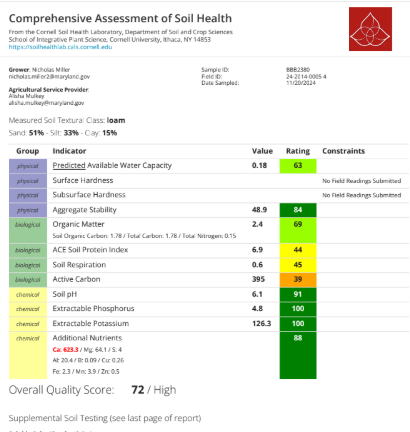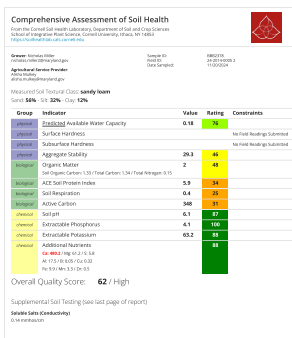The Maryland Department of Agriculture has been so supportive of this grant and offered to help us collect and test our baseline soil metrics. We met with our department advisor and took soil samples to send off to Cornell laboratory to quantify baseline soil metrics such as organic matter, cation exchange capacity, and carbon percentages. The lab at Cornell also generates a numeric score for soils, indicating soil health metrics. We are pleased to display our benchmark results below. We will be testing each spring and comparing/publishing results for the remainder of the grant study period (3 years).
Field 1 results
Field 2 Results
Field 3 results
I am excited to see how our next few years of cover crop/cash crop rotations effect our soil health metrics. I hypothesize that with our advanced soil management techniques we will be able to effectively increase our soil health metrics, specifically to increase soil organic matter to increase overall soil health. I am enthusiastically hopeful that cover crops will be a useful tool for small farmers with measurable gains in soil health, yields, and farm sustainability.








